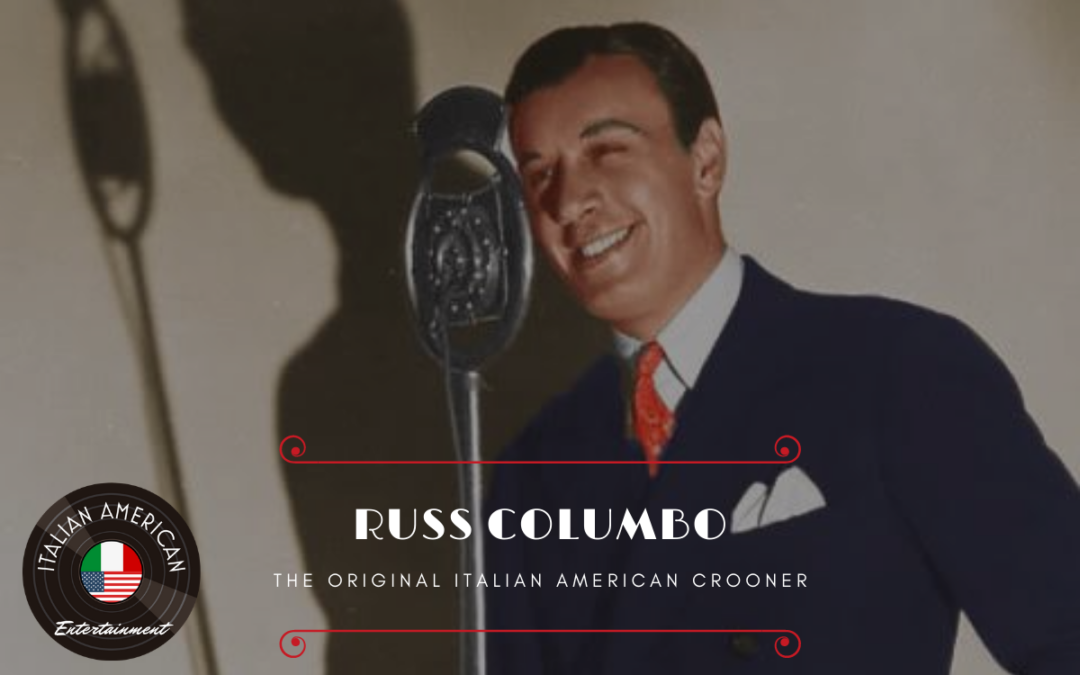When I had this idea of making a website dedicated to Italian American’s in music and entertainment, I knew I’d find artists I had never heard of before. But, I had no idea I’d find someone so fast. When trying to figure out who I wanted to feature first, I started looking for early Italian American musicians, and found a name I had never heard before, Russ Columbo.
Ruggiero Eugenio di Rodolfo Colombo, known as Russ Columbo, was an Italian American singer, songwriter, violinist and actor. He is famous for romantic songs such as “You Call It Madness, But I Call It Love,” “Prisoner of Love” and “Too Beautiful For Words.” Columbo was born in Camden, New Jersey, of Italian immigrants, Nicola and Giulia Colombo. He started playing violin when he was very young and debuted professionally at the age of 13. When he was 16, his family moved to L.A. But when he was 17, he left high school to study the violin with Calmon Luvovski and travel as a musician with bands around the country.
At the age of 20, Columbo began to participate in motion pictures. While he started as a violinist and standby singer with Gus Arnheim and His Cocoanut Grove Orchestra, Columbo eventually obtained feature film work. Some of his films include, Woman to Woman (with Betty Compton), Wolf Song (with Lupe Vélez), and The Texan (with Gary Cooper). While he had some success in the film industry, his true success came as a baritone singer. Arnheim saw potential in Columbo, and when fellow baritone Bing Crosby started showcasing erratic behavior, Columbo was asked to step in and fill his place as lead singer.
After garnering some public attention as the featured Arnheim Orchestra vocalist, Columbo decided to go off on his own. After many ups and downs during the Depression era, Columbo found a manager who found him some work on NBC radio. At the same time, Bing Crosby had been signed to a comparable radio program on CBS radio, which started some public rivalry. Radio executives saw the potential for some publicity of this rivalry, which started the “Battle of the Barritones.” While the public saw a heated rivalry, with Crosby and Columbo recording the same songs and headlining at theaters within miles of each other, privately the two were very friendly.
The type of singing that was being popularized by Columbo, Crosby and teen idol and singer Rudy Vallee, was called crooning. While Columbo disliked this term, it caught on with the general public and is still used today. Columbo started composing his own songs such as “You Call It Maddness (But I Call It Love)”, “Let’s Pretend There’s A Moon,” recorded by Fats Waller and Tab Hunter, and his most famous song “Prisoner of Love.” “Prisoner of Love” became a standard that has been recorded by Frank Sinatra, Perry Como, Tiny Tim, Bing Crosby and James Brown. It hit no. 1 on Billboard with Perry Como’s recording, and James Brown landed a Top 20 pop hit with his rendition.
In 1934, Columbo was at the top of his game and was only 26 years old. But on September 2, 1934, what can only be described as a freak accident took Columbo’s life. While at a friend’s house, Columbo was accidentally shot while looking at his friend’s firearm collection. He contributed a lot to the entertainment world in those short 26 years, and it would have been amazing to think what the music scene would look like if he was able to continue writing more songs and recording.
For more detailed information on Russ Columbo, here is a great article https://www.shsu.edu/~lis_fwh/book/roots_of_rock/support/crooner/Columbo2.htm
Also, see below for Russ Columbo’s version of his hit song “Prisoner of Love.”


Prisoner of love. One of my favorite numbers .